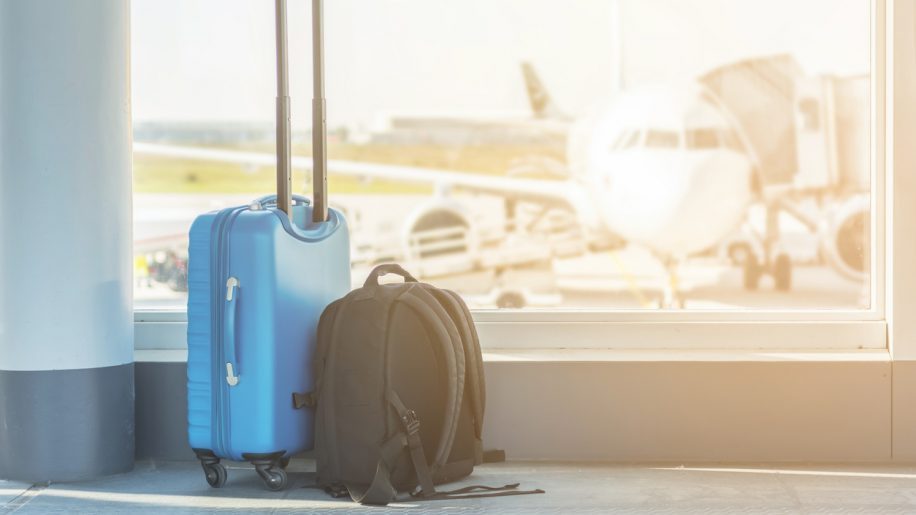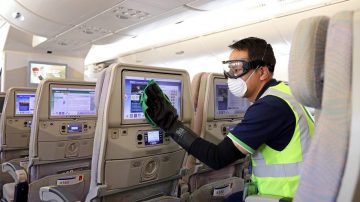
Airlines will be looking to tempt back passengers with low fares while at the same time keeping their own costs down. It means they may start charging for extras, even in premium cabins. By Alexander Freeman.
COVID-19, the global disruptor of all disruptors, is forcing us to think outside the box – as we adjust to a life unimaginable just a few months ago. Aviation worldwide has been hard hit by the virus, with IATA currently projecting that commercial airlines will lose over US$300 billion during 2020.
All this means that airlines are currently treading water, operating limited flights largely for repatriation and cargo purposes. In the medium term, however, with significant losses accruing, the airlines will be forced to drastically evolve and adapt their business models once markets slowly re-open, as they are now starting to do. Passenger numbers are down, which means that larger planes are much less viable.
That’s leading to many high capacity aircraft such as the A380s and B747s being stored. In many cases they’re being permanently (and prematurely) retired, for example – Air France’s recent decision to retire its entire A380 fleet effective immediately. Other airlines taking similarly drastic measures.
How could this impact airfares?
Downsizing aircraft fleets isn’t the only way airlines might cut costs in the immediate future. Another is through a change in pricing models. Post lockdown, airlines will invariably need to attract customers, but at prices that still encourage demand while generating sufficient revenue to be profitable by keeping costs low. This, with the additional headache of enhanced health and safety requirements which are costly but unavoidable.
A way this can be achieved is through changes in how airfares are packaged and sold – so that at least lead-in fares remain as attractive as possible. The concept isn’t new, with low cost airlines, and even some ‘legacy’ airlines, having disrupted the industry in this way since the 1970s (think Southwest, Easyjet, Ryanair but more recently British Airways with its ‘Buy on Board’ product in economy).
For airlines focusing on higher spending premium customers, unbundling has been the absolute exception rather than the rule – especially in premium cabins such as first, business and even premium economy where most aspects of the travelling experience are traditionally included in the fare.
Could a way forward be a total unbundling of airfares in all classes, where the basic advertised fare includes only the seat – with further products and services available at an additional cost? With IATA estimating ancillary revenue contributions at US$100 billion during 2019 – that’s a lot of earning potential for a cash strapped airline industry. The benefit for the airlines is that items which previously would have been pure cost for the airlines, now become a source of revenue.
This could start with pre check-in seat selection – which some airlines already charge for even in Business Class – and extend to aspects of the premium flying experience we now take for granted, such as complimentary lounge access, priority check-in and boarding, food, alcohol and amenities both on board and on the ground. It could even extend to frequent flyer points.
As with the low cost airline model – these could be sold individually or as bespoke packages during the booking stage and during the flight. This isn’t a new concept and technology already exists to support such a shift.
Angry frequent flyers?
I can feel the ire of fuming frequent flyers, yelling at their tablets as they read this. As a frequent flyer myself, I don’t blame them – given how accustomed I’ve personally become to the included benefits enjoyed when flying up front or holding higher tier frequent flyer status.
Would universal unbundling be a dilution of value? On the surface, yes. But in fairness it wouldn’t limit what products or services made available, albeit at a price. The flipside would hopefully be a lid on airfares – at least at the entry level in all classes of travel.
Customers could trade up from a baseline fare which includes only the seat (and maybe a pillow?). Differentiation would remain given that each cabin would still offer vastly different seating products, from the affordable squeeze of economy through to endless space of first class.
Impact on travel industry?
Such a strategy will, admittedly, impact how travel management companies (TMCs) book and account for airfares – especially where additional products are purchased at the point of sale. TMCs have already been doing this for years and the tech platforms to support unbundling already exist.
In fact, the trend had already commenced before COVID-19 when Emirates launched unbundled business class fare in 2019 to certain markets. Also, many airlines have already been selling lounge access with Emirates, Qatar Airways and Qantas, to name a few, now offering premium lounge access for a fee to certain customers.
What could this mean for loyalty?
How would this impact customer loyalty and their willingness to stick with an airline, or alliance if frequent flyer benefits are suddenly diluted? There is no easy answer to this question, given that customers choose to be loyal to airlines for very individual reasons – be it location, network or product.
Ultimately however, unbundled premium travel won’t likely result in the collapse of airline loyalty schemes. To the contrary, airlines will have an opportunity to reward individual frequent flyers or corporate accounts with complimentary or discounted additional services in a more customised way to enhance revenue.
It could also arguably increase the perceived value of premium products, such as airport lounges and expensive on-board food and alcohol – if it they are enjoyed on a user-pay basis. It might also inject greater fairness, given that our consumption of food and drink on board varies enormously depending on a passenger’s personal preference.
Finally, with aircraft cabins increasingly resembling hospital wards, many customers’ priorities and expectations while traveling have already shifted from luxury to practicality, as luxury hand creams, canapes and glasses of French champagne are replaced with disinfectant wipes, sealed wrapped sandwiches and plain bottles of water – all enjoyed while wearing a face mask.
So with airlines scrambling to redefine sustainable air-travel in the short to medium term, perhaps the unbundling of airfares across all classes might be one way airlines evolve in order to survive – by reducing costs, keeping fares lower while maintaining demand and choice.
There will certainly be resistance from some customers, and for it to succeed there will need to be an element of universal adaptation by at least the major airlines and alliance members as well as industry groups such as IATA. However, if there was ever a time for airlines to think outside the box – now is definitely that time.
Alexander Freeman is an aviation lawyer, journalist and travel writer.












